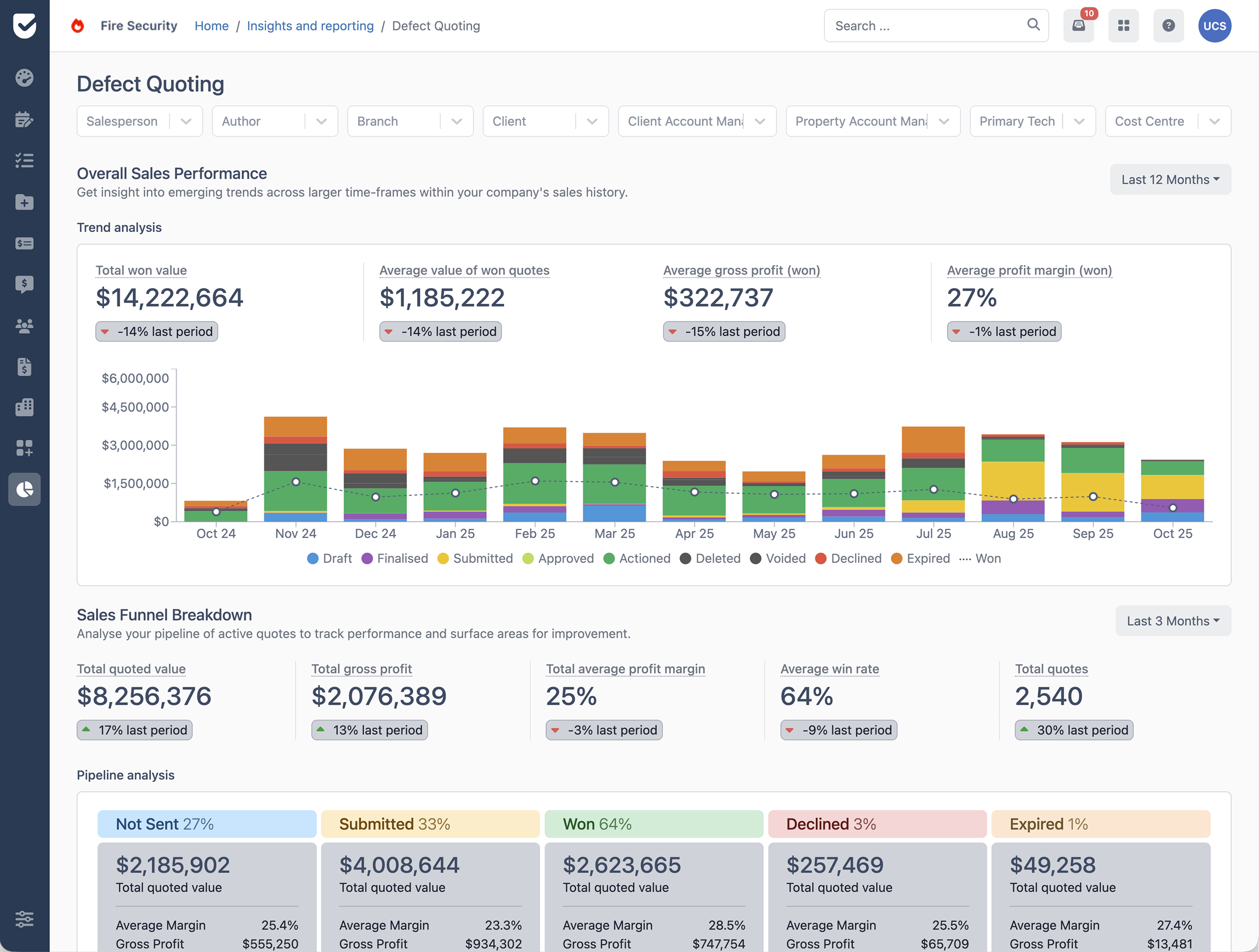What it Really Takes to Recruit Fire and Security Engineers in 2025
June 12, 2025
1
min read

In episode 2 of The Blueprint, we sat down with Lauren Cooper, Head of Sales at Cento and Greg Linehan, Operations Director at Fisk Group, to discuss what’s going wrong with recruitment, what needs to change, and how the best companies are attracting and retaining top talent.
It’s never been easy to hire skilled engineers in the fire and security industry, but the last few years have been harder than ever. A chronic skills shortage, rising candidate expectations and increased competition have all changed the way companies need to approach recruitment.
So what’s the solution? Our podcast guests think that working on your employer value proposition and having robust tech solutions is vital for attracting young staff.
In episode 2 of The Blueprint, we sat down with Lauren Cooper, Head of Sales at Cento and Greg Linehan, Operations Director at Fisk Group, to discuss what’s going wrong with recruitment, what needs to change, and how the best companies are attracting and retaining top talent.
Why engineer recruitment has changed
The fire and security job market is incredibly competitive right now. It’s a candidate’s market, and they’re being more selective than ever.
“Everybody knows there’s a massive talent shortage, especially at engineering level,” says Lauren.
“A lot of the good engineers have gone subcontracting, which means that the permanent engineers are harder to find and even harder to keep.”
With many engineers going self-employed, it leaves the pool of talent much lower than it needs to be. Greg says that Fisk is seeing this firsthand.
“Some months are easy and you get a lot of CVs sent to you, and people contact you directly, and then other months you won't have one single CV sent to you.”
So why is this happening? Lauren says that it’s because engineers’ expectations have changed, and companies haven’t aligned themselves with these new expectations.
Work-life balance
Work-life balance is one of the most important things to candidates - in fact, a recent report found that 33% of UK workers considered work-life balance to be the most crucial consideration when looking for a job.
“What people want from a job has changed,” says Lauren. “Work-life balance is massively important to people.”
So companies need to ensure that their roles offer a better work-life balance than has been seen before, or compensate engineers appropriately when they’re expected to work unsociable hours or travel long distances to jobs.
Greg says this is very different to when he started at 16. “You just went where the work was. You just got on the train with a tool bag on your back!”
The desire to specialise
Another key change to the recruitment market is that engineers want to specialise in one element of fire and security inspection and maintenance.
“We’ve started seeing candidates who only want to do maintenance or small works. Or they only want to do fire extinguishers or just fire alarms. They don’t want to be multi-skilled,” says Greg.
So companies need to adapt to this change in the market - and Greg says it’s not necessarily a bad thing.
“At Fisk, we’ve got a stand-out fire guy and a stand-out security guy… They combine really well together, they work on a project together to get the job completed.”
And Lauren thinks this can be better for business outcomes. “It’s good that you’ve got superstars in either discipline rather than just a mediocre, multi-disciplined engineer.”
However, she also recommends that younger candidates learn both disciplines to help them progress their careers.
“The world’s your oyster then. You can do what you like with your career - you can go in any direction.”
Where employers are getting it wrong
It’s clear that engineer recruitment has changed, but some employers haven’t responded to these changes yet. That’s led to a disconnect between employer expectations and candidate priorities.
“Engineers have got so wise to the fact that they can be very demanding when they’re asking for what they want out of roles, and it’s up to businesses to be able to provide that,” says Lauren.
“But then there’s also a limit, and that’s where I think we’re seeing a little bit of disparity in the market at the moment.”
Here are some of the most common mistakes fire and security companies are making in recruitment in 2025:
Vague job ads
Vague job ads with no salary or hook won’t attract high-calibre candidates.
“When somebody posts on LinkedIn or Facebook: ‘We are looking for engineers. Anyone want to move? DM me’... What would make you want to apply for that job? Nothing,” says Lauren.
“There are so many roles out there… So you have to be able to really catch someone’s eye to make them want to move.”
Another common mistake is companies trying to pass off statutory benefits or standard things an engineer needs to do their job as reasons why a candidate should work for them.
“[Some companies say] these are the benefits, but they’re the benefits you get anyway… Your company vehicle, your laptop, your work phone… You need these to do your daily tasks, they’re not really benefits.”
Overpromising and underdelivering
Another common mistake companies make is overpromising at interview stage, so they can’t deliver. Lauren says it’s one of the main reasons that people look to leave a role.
“They’ve been told they’re going to be put through [training courses]... Six months, nine months in, if they’re not seeing the fruit from that, that’s when they look to move again.”
Greg says they are seeing this in the candidates they interview.
“They’re all saying the same thing. I said ‘How come you’ve had a bit of a jump in your CV?’ [They say] ‘I was promised local work and I’m driving all over the country,’ for instance, or ‘They’re crushing my overtime’.”
Not understanding what candidates value
The key driver for fire and security engineers used to be pay, but this isn’t so much the case anymore. Staff want to feel appreciated for their work, be given flexibility and have their skills and limitations respected.
“Engineers want to be appraised… They want to be thanked… Sometimes a thank you goes a long way,” says Greg.
Lauren says that flexibility is crucial, too. “An early shoot to go to sports day or to pick kids up from school goes a really long way.”
Another common mistake that Lauren and Greg have seen is companies putting too much pressure on engineers to do inspections or maintenance on systems they’re not skilled in or comfortable working with, or that they’ve not actually worked on.
“They’ve been put in situations where they’ve been asked to put their signature against systems that they’ve not serviced or commissioned. That needs to change,” says Lauren.
Greg says that there shouldn’t be any need to do this. “We’ve got enough skilled engineers who are more confident in [those] systems. We don’t want to set anyone up to fail… If you’re making someone do something they don’t want to do, they’re not going to work for you.”
How to build a hiring strategy that works
So now you know the most common mistakes companies make in fire and security recruitment, what can you do to build a hiring strategy that works? Lauren says it’s all about working on your employer value proposition (EVP).
“Developing a really strong employer value proposition is so important to get the right talent into the business and retain it,” says Lauren.
“Some companies do it really well - it’s something that often happens in the background without you actually trying to achieve it.”
But if you do want to work on improving your EVP, what can you do?
Use social media to your advantage
Share wins and success stories on your social media to demonstrate to candidates that you’re a good company to work for and that you invest in employee development.
“Telling those success stories is really important because somebody from the outside looking in will research your company,” says Lauren. “If they see a success story of someone starting as an apprentice and working their way up to director, they’ll think ‘I’d like a bit of that’.”
Offer real benefits
Like Greg said earlier, don’t just list statutory benefits on job advertisements. Consider what actual benefits you can offer your staff, such as:
- An extra day’s holiday after a certain length of service
- Health insurance
- Company socials
- Flexible working hours
Offering benefits is a proven way to increase retention rate. A Qualtrics survey found that employees are five times more likely to remain at a company when they feel rewarded.
Offer training and development
Making continuous professional development part of your employer value proposition is one of the best ways to attract staff. Greg says that Fisk makes training part of an engineer’s working life with the company.
“We’ve just taken on an engineer who’s worked with a national company but only in one discipline,” says Greg. We started putting him on courses and more training programmes, and last week he came up to me and said ‘You’re already delivering what you promised in the interview.’”
It shows just how much training and development can be critical to retaining staff.
“The majority of the time that people are looking, it’s down to lack of training and lack of opportunity,” says Lauren. “Money does come into play, but it’s not the be-all and end-all.”
This is good news for companies that often end up in bidding wars for a candidate who has offers from the competition.
In fact, Lauren says that candidates solely looking for money aren’t necessarily the candidates you want.
“It’s the ones who are only looking for specifics. It could be for training opportunities or progression… They’re the ones you want to speak to,” she says.
“And typically they won’t be speaking to multiple companies because they’re only looking for a specific opportunity.”
Fisk also heavily invests in apprenticeships. Episode 1 of The Blueprint featured James, Fisk Group's other operations director, and David from Skills for Security, who talked about how beneficial apprenticeships are for the industry.
Tools and tech can be a unique selling point
Technology might not be the first thing that comes to mind in recruitment, but for younger engineers, it’s crucial.
“The different technologies and processes that companies are using make people want to join them,” says Lauren.
“People want to be working with the best in the market. They want to be working on the good [tech] with the best businesses.”
Greg says software and equipment often come up in interviews - candidates want to feel confident in their job from day one.
“We’ve got an engineer coming from another company who has used Uptick before,” says Greg.
“It makes it an easier transition for them… You don’t want to throw them in the deep end, so you want to make sure that the company is the right fit for that engineer too.”
So, in a candidate-led market, the rules around fire and security recruitment have changed. It’s no longer just about filling roles - it’s about building trust, offering genuine opportunity, and living up to your word.
Be honest in the hiring process. Show people the culture and growth opportunities you offer. Follow through on training and development. Appreciate your team and invest for the long term.
That’s what it really takes to recruit fire and security engineers in 2025.
What is fire inspection software?
Fire inspection software is a digital tool that helps fire protection businesses complete, record, and manage inspections more efficiently. Instead of relying on paper checklists, technicians can use a mobile app to document assets, capture photos, log defects and generate professional reports on the spot.
How does fire inspection software work?
Fire inspection software programs such as Uptick allow technicians to complete inspections on-site using a tablet or phone, capture photos, log defects and generate instant reports. In the office, teams can schedule jobs, send quotes, track maintenance tasks and access real-time visibility across every building and asset. Fire inspection software systems bring your entire workflow together so nothing falls through the cracks.
Who uses fire inspection software?
Mainly fire inspection companies use fire safety software to coordinate inspections and maintain life-safety assets.
How does fire safety inspection software improve compliance?
Uptick ensures technicians follow the correct steps every time, reducing human error and creating consistent records aligned with standards. With asset-based inspections, automated reminders,a full audit history, and in-built compliance reporting, Uptick’s fire safety management software makes compliance easier for you and more transparent for your customers.
Can fire inspection software replace manual checklists?
Absolutely. Digital checklists, mobile inspection forms and automated workflows mean you no longer need printed paperwork. Using fire protection inspection software helps you avoid missing fields, lost forms and manual retyping, saving hours of manual work each week.
Can I customise inspection forms?
Yes. Uptick lets you customise forms to match your local standards, business processes and customer needs. With configurable templates and digital form builders, you can design exactly what your technicians need
How do I choose the best fire inspector software for my business?
Look for a platform built specifically for fire protection. Check ease of use, mobile performance, offline mode, compliance features, integration options and customer support. The best fire inspection software gives you room to grow, not just tools to get by.
How much does fire inspection software cost?
Our pricing model is based on a monthly pay-per-user fee. Customer and sub-contractor licenses are unlimited and free.
What else do you need to know?
How long does it take to get started with Uptick?
The biggest factors determining the length of the onboarding process are:
- The size of your team and their training requirements
- The quality and ease of export of your data
Most companies can get up and running within 2 months.
What platforms and devices does Uptick work on?
Uptick lives in the cloud. That means Uptick is available for your desk/office users on any device (Mac, PC or Linux) via your browser with no additional software downloads.
For your field licenses, on-site staff can use either Apple or Android devices. Our fire safety management app is available in the App store on Apple devices, and the Google Play store on Android devices.
How does Uptick compare to other products?
Uptick is the only modern cloud-based solution that is purposely built for the fire protection industry.
Many alternative solutions are either generic job management platforms that you will need to tailor to your business and/or do not have the same modern cloud-based capabilities.
How does Uptick protect and secure my data?
Uptick takes data security seriously. Our customers include some of the largest companies in the industry. As we work directly with government and banking clients we have have successfully passed through rigorous security auditing and penetration testing.
In addition to being secure, we work hard to provide a reliable service. Customers on Uptick can expect an uptime of 99.95% (including scheduled maintenance). This translates to an average of less than 5 minutes of business-hour downtime per month for office users and no downtime for technicians. If you're a large enterprise and want monetary guarantees around reliability, we offer dedicated hosting and Uptick Support SLAs.
How does Uptick pricing work?
Uptick charges a simple per-user monthly fee for each of your desk and field users. Customer and sub-contractor licenses are unlimited and free.
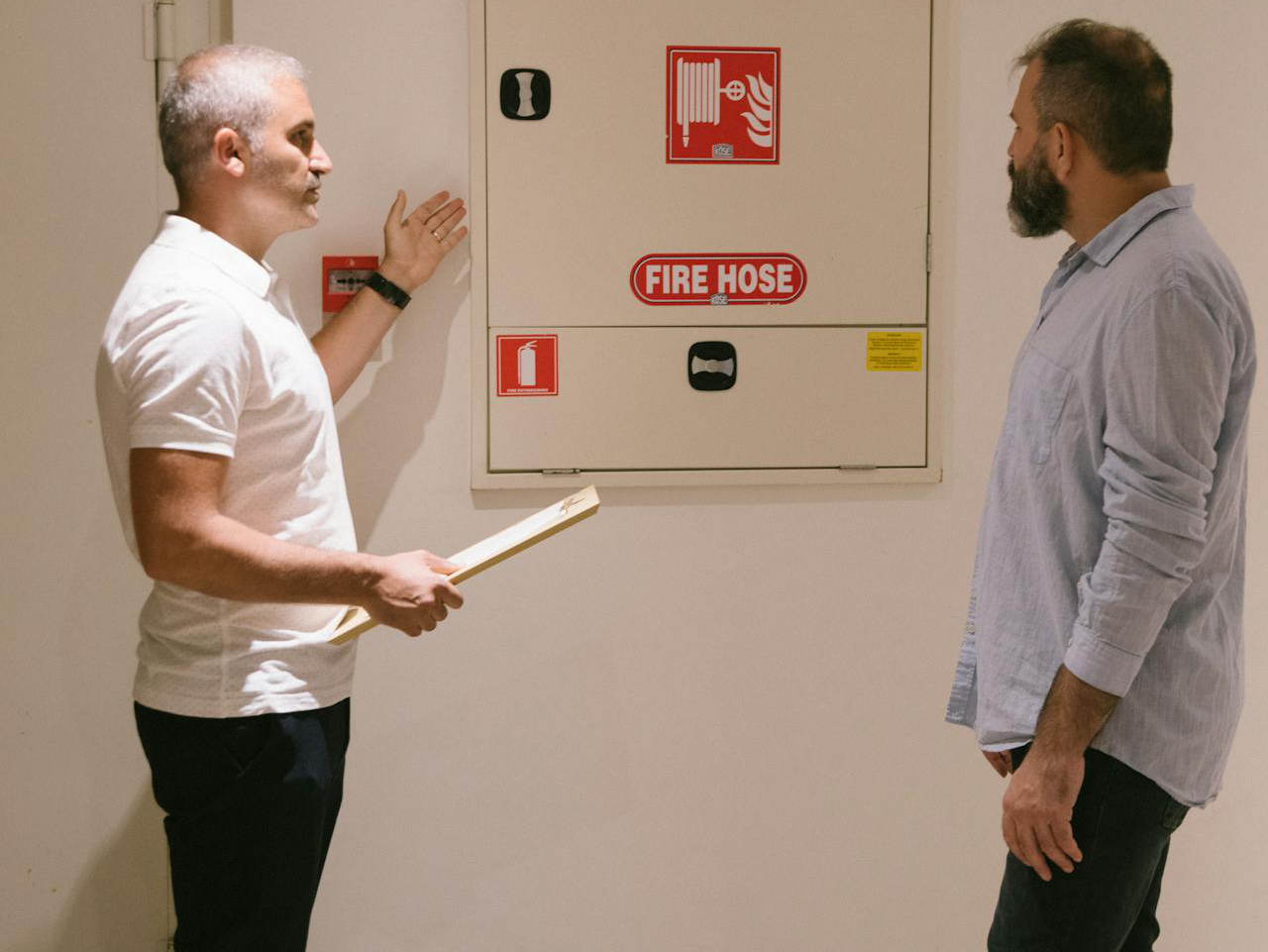
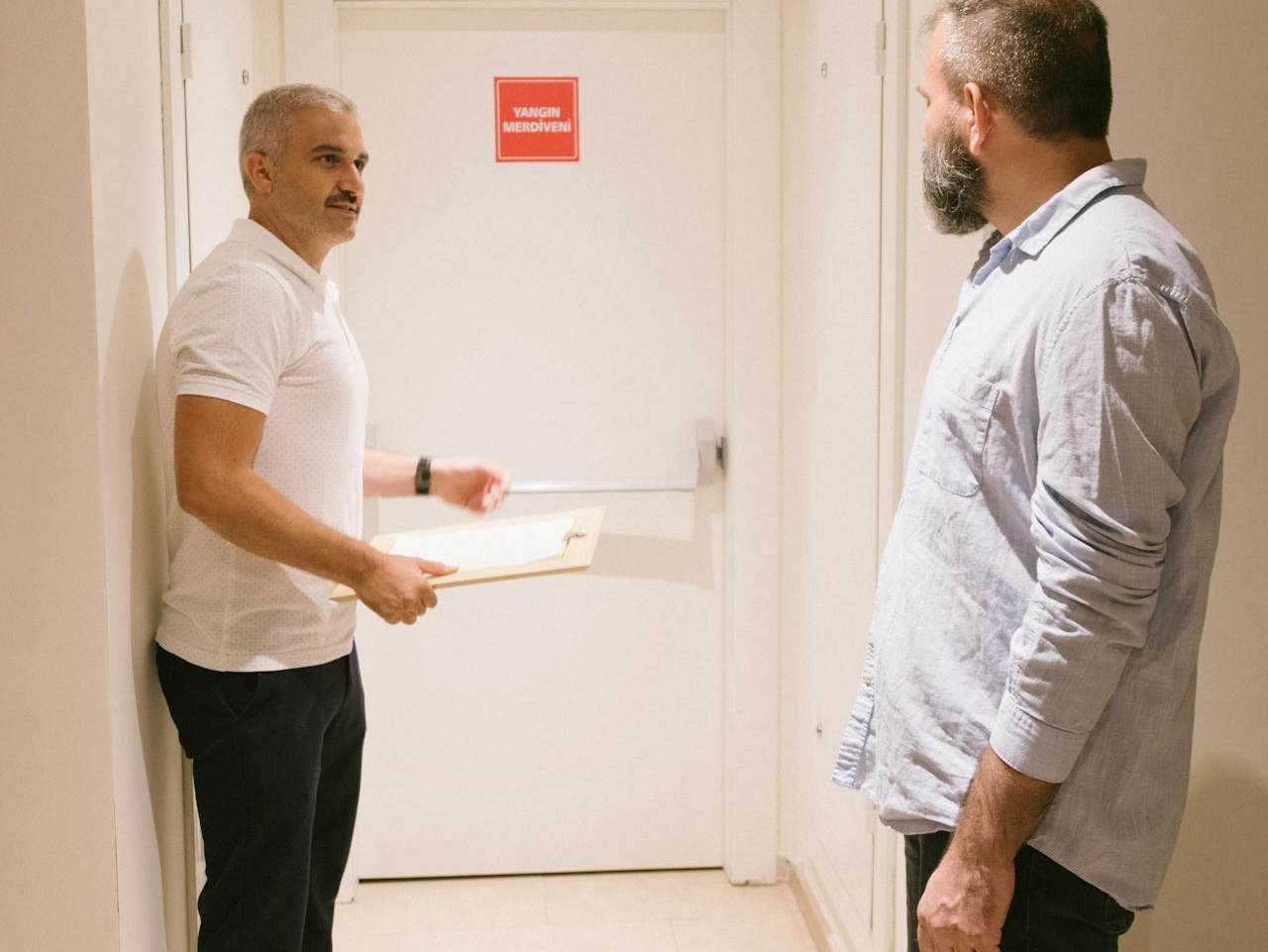
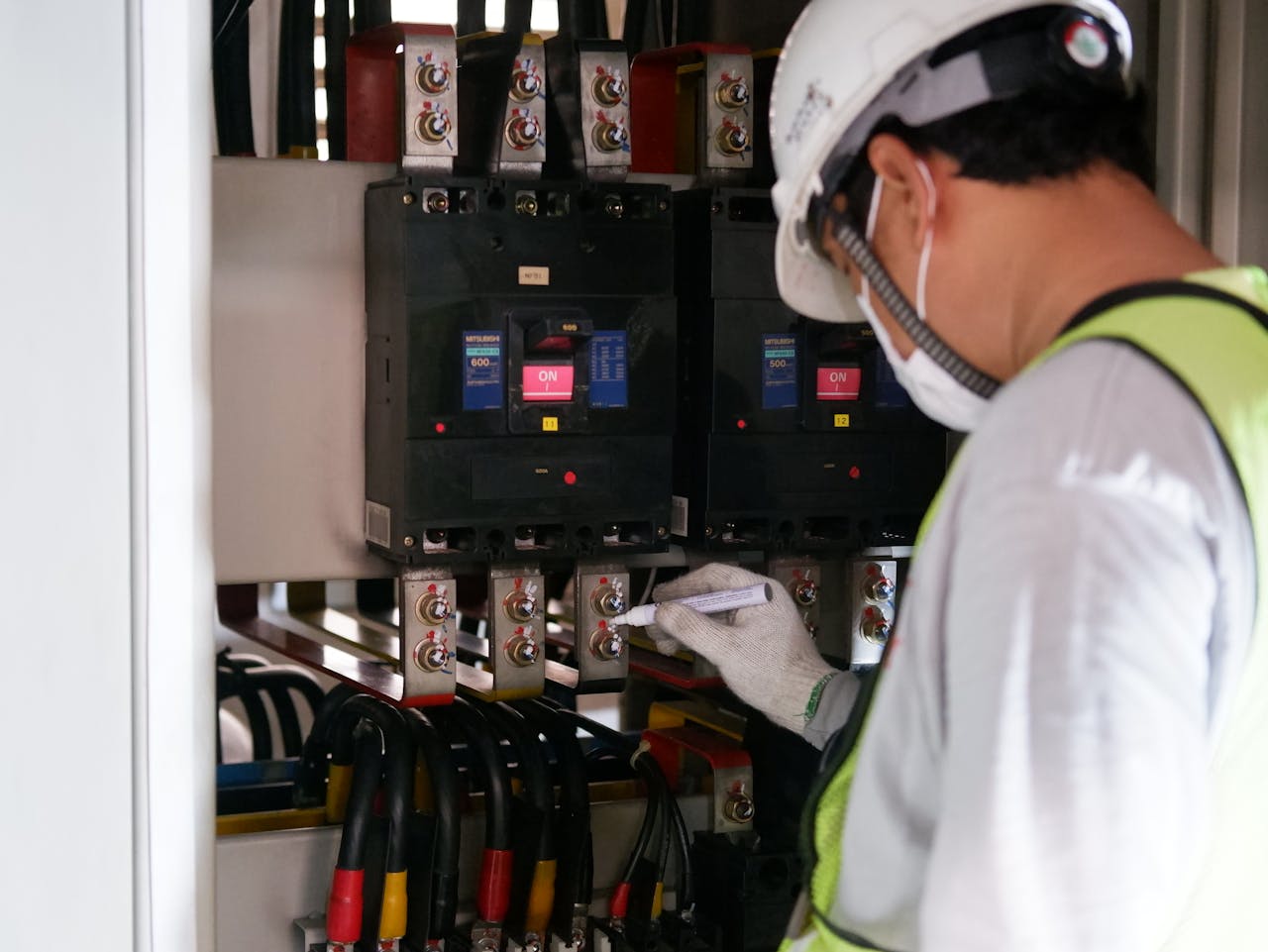








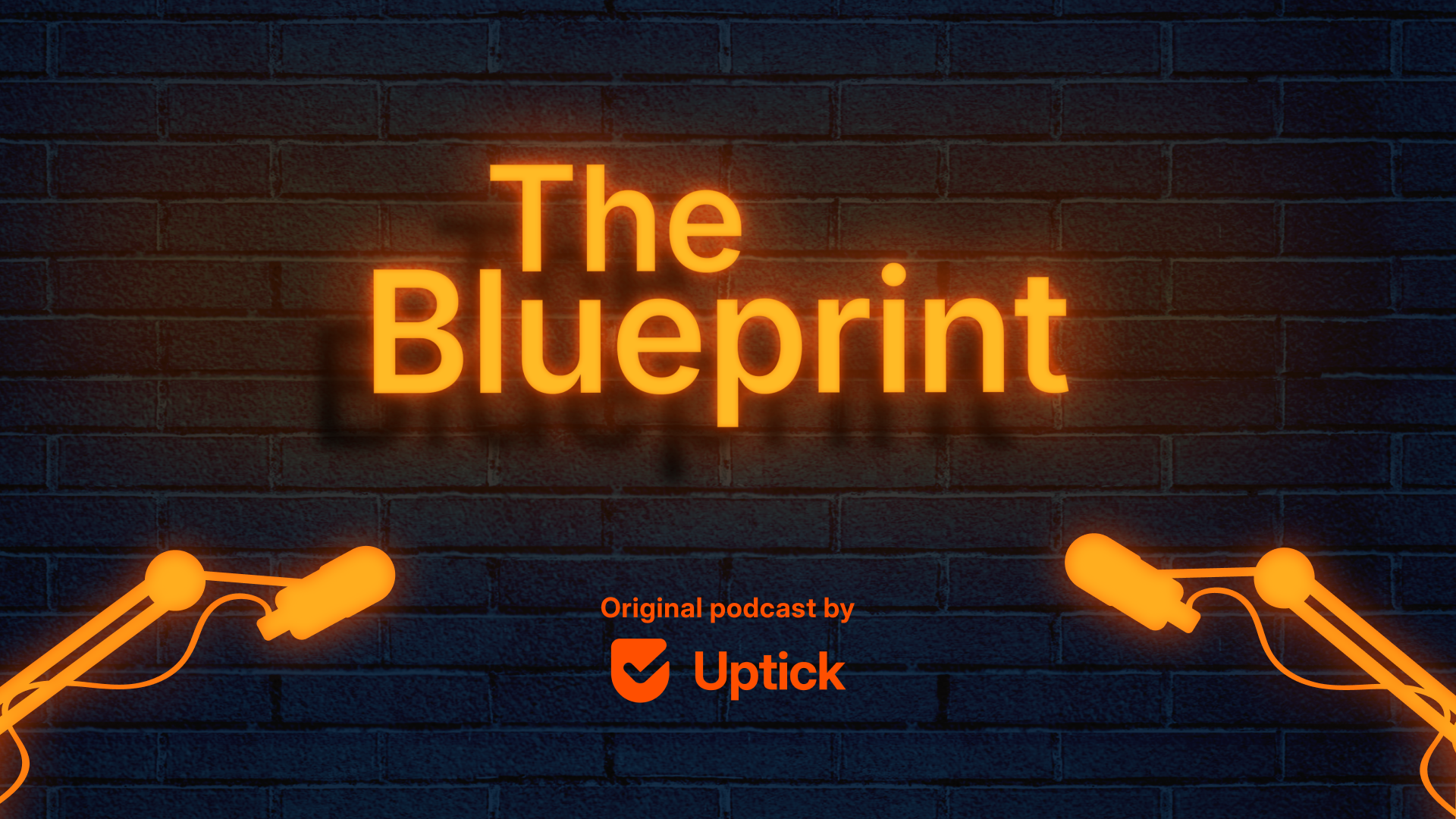






.png)


